On View: January 23 – March 3, 2021
Lynn Cazabon is an artist based in Baltimore, MD and is also a Professor of Art at University of Maryland, Baltimore County. Her work has been exhibited in solo and group exhibitions with the Maryland Center for History and Culture (Baltimore, MD), National Museum of Contemporary Art (Bucharest, Romania), Tsung-Yeh Arts and Cultural Center (Tainan, Taiwan), South Bend Museum of Art (South Bend, IN), WRO Art Center (Wrocław, Poland), Govett-Brewster Art Gallery (New Plymouth, New Zealand), The Mattress Factory (Pittsburgh, PA), Artists Space (New York, NY), Hallwalls Contemporary Arts Center (Buffalo, NY), Schroeder Romero Gallery (New York, NY), Atlanta Contemporary Art Center (Atlanta, GA), and with the Art in Embassies Program. She has received grants and fellowships from the Saul Zaentz Innovation Fund, Puffin Foundation, Robert W. Deutsch Foundation, Maryland State Arts Council, Fulbright Scholar Program, Trawick Foundation, Franklin Furnace Archives, The Camargo Foundation, MacDowell, and Yaddo.
Artist Statement
“Early spring felt good; early spring felt dreadful. Now, whiplash as we slam into a snowbank. This is the motion sickness of climate change: The world lurches, and our bodies know that all is not well. What we experienced as spring, a predictable appearance of buds and birds, is passing away. Our children will live in uncharted, unnamed seasons.”
David George Haskell, biologist and author
Losing Winter is an extended and collective grieving for the season of winter, reflecting on the personal and cultural losses associated with the climate crisis that run in parallel to environmental impacts. Losing Winter is a participatory project, consisting of memories and emotions connected to winter shared by people through video recordings and displayed through site-specific exhibitions and a free augmented reality mobile application.
What does it mean to lose winter? In biology, the shifting baselines theory describes a change to the way a system is measured against previous reference points over a long period of time. With regard to climate change, shifting baselines is the tendency for each generation to have differing expectations of what is “normal” for a season, a baseline. Over time, this results in a kind of collective amnesia and ignorance about ongoing climatic changes underway and the feelings of grief people may suffer in connection to climate-change related losses.
For this iteration of Losing Winter, Cazabon used the project as a means to engineer a generational dialogue between communities of people aged 60+ and Smith College students enrolled in Professor Ellen Kaplan’s class THE 312 Masters and Movements in Performance: Theatre in Dialogue with the Landscape. Cazabon first recorded winter-related memories from individuals at Raymond A. Jordon Senior Center and Hungry Hill Senior Center in Springfield, MA. These recorded memories were transcribed and shared with the students who in turn created original monologues inspired by selected memories. Cazabon next recorded each student performing their monologue and these recorded performances are on view in the exhibition with the original memory recordings.
Performers:
- Michelle Erard
- Kathleen Green
- Phoebe Turner
- Molly Muellner
- Clarissa Po
- Teva Skovronek (performing a work created by Lyza Fennell)
- Steffi Ordway
- Bella Yagoda
- Aria Martinelli
- Hero Hendrick-Baker
- Maren Scharf
- Hillary Dennis
The artist would like to acknowledge the support of Professor Ellen Kaplan, Bianca Dillard (dramaturge), Linda Henley (Director, Hungry Hill Senior Center), and Dashima Washington (Director, Raymond A. Jordan Senior Center). She would like to extend thanks to the students for their participation and to all the people who contributed their winter memories to the project.
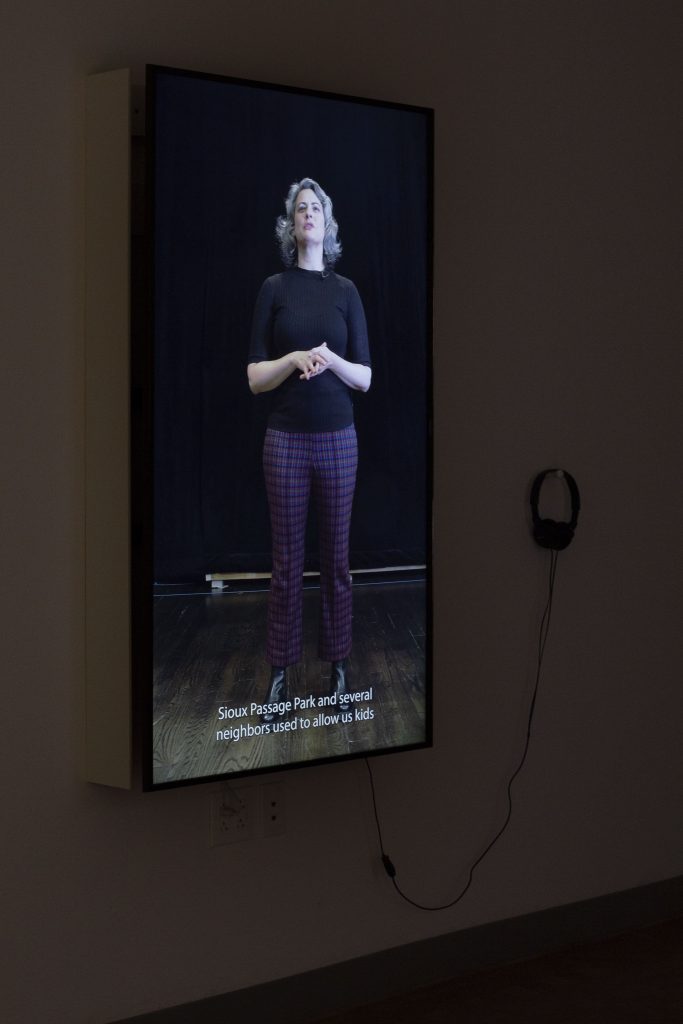
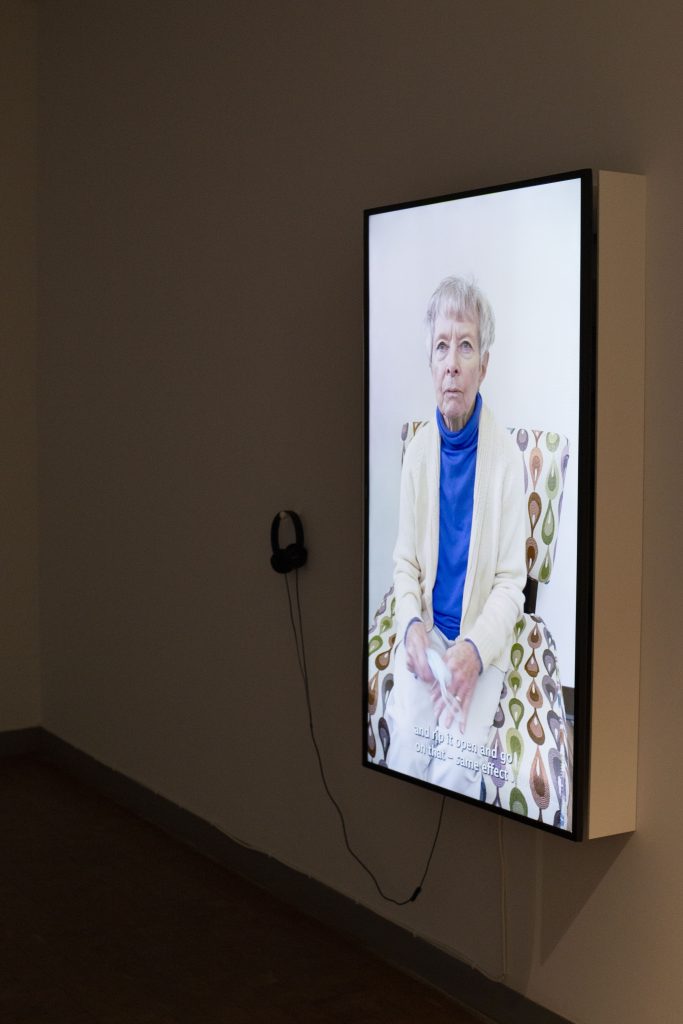
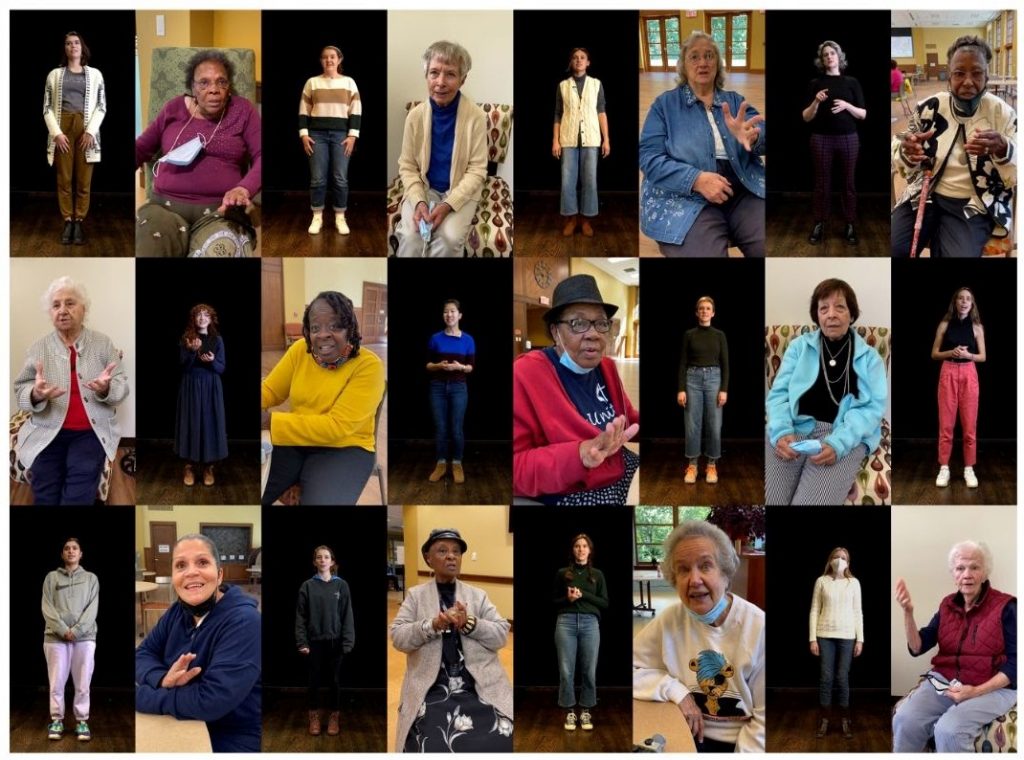
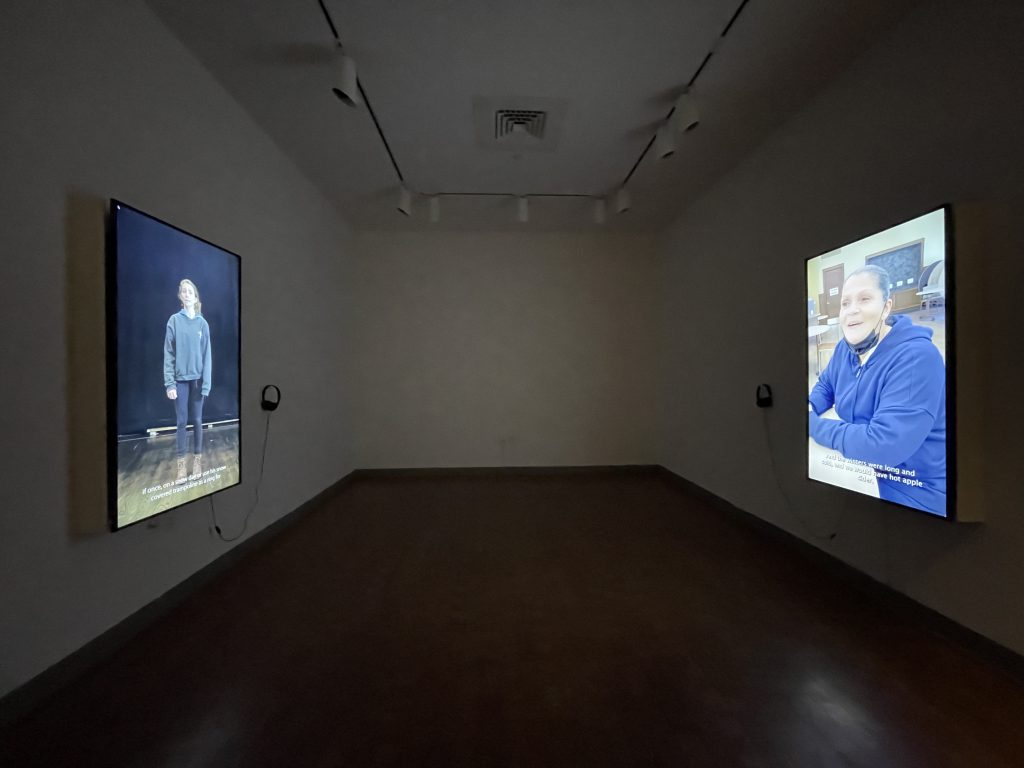
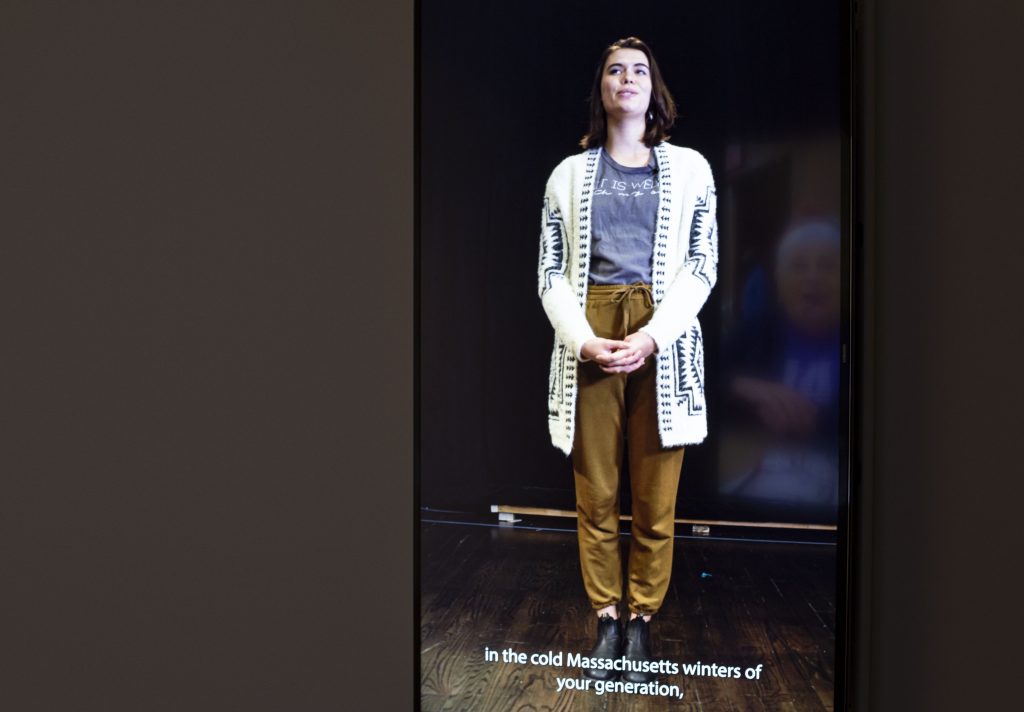
You must be logged in to post a comment.